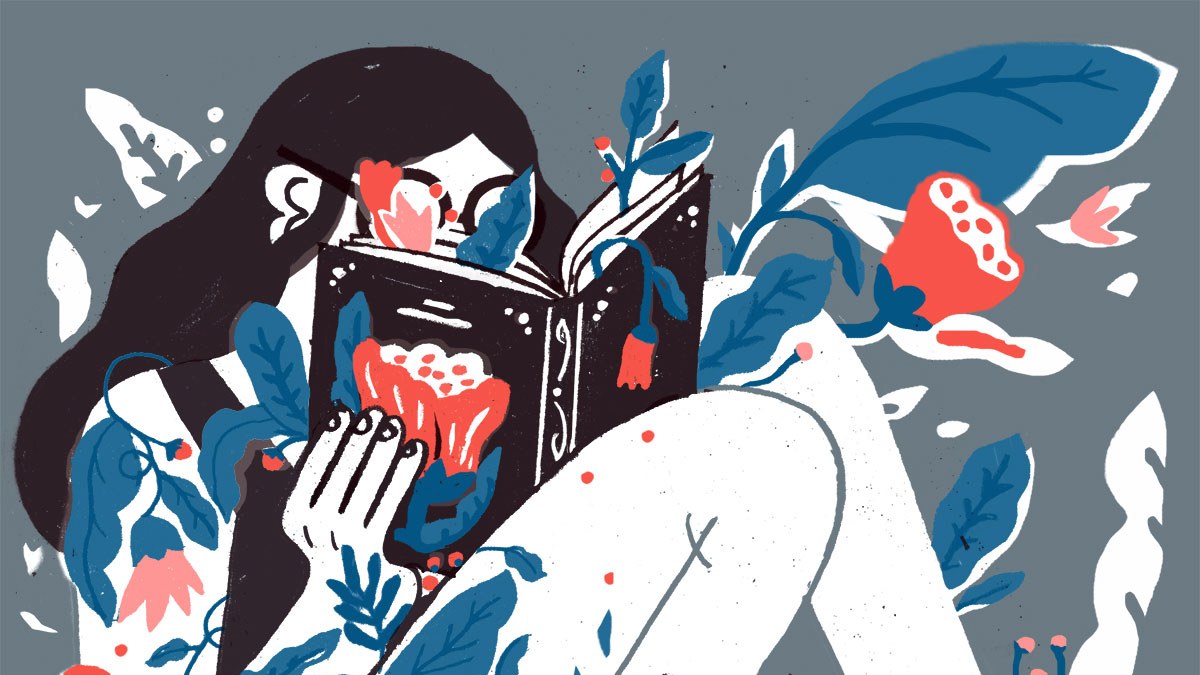by Alice Fournier
“In a secular age,” writes Ceridwen Dovey in a The NewYorker article, “I suspect that reading fiction is one of the few remaining paths to transcendence.” The article, published in the newspaper’s section ‘Cultural Comments’ and titled, “Can Reading Make You Happier?” had me wondering this exact same question.
I don’t remember a single time when reading made me significantly happier. Nor have I ever experienced what Dovey calls a loss of “sense of self.” Nor has it made me feel more like myself, ever. Now, maybe you’ll think I’m exaggerating, and that there must have been childhood books that made me wish I was someone else. Well, yes, but that’s not the idea of transcendence, is it?.
(I should also point out that if bibliotherapy works for you (and you’re, likewise, part of the Internet generation) then good for you. And please, tell me your secret.)
Knowing very well that I am, by nature, a very impatient person, I thought that taking two literature courses this semester would help me correct that. To some extent, it has: I made a daily habit of reading at least some pages of a book every day and tried to include more reading into my daily life. But, in the end, I am what I am, and while patience is a virtue, working on it when you’re not blessed with it turned out to be a lot more difficult than I expected.
It’s not to say that books have no effect on me; they do, but only insofar as they can ‘hook’ me, so to speak, almost immediately. And there you have it: the millennial’s struggle to read. Now, I can only analyze myself here, but I realize that when a YouTube video does not ‘hook’ me, I can simply click out of it. And, yes, you can also click out of your book, by placing it back on your bedside table, telling yourself that you’ll try again tomorrow.
This is me almost every night. Trying, and trying, until you can’t try anymore and you’ve lost all interest in doing so. You can opt-out of a Youtube video, with the assurance that it’ll probably still be there if you want to come back to it, but it’s not the same with books. You can lose, break or forget books even exist. You might have to leave it behind someplace – something all international students here are familiar with. And then the opportunity is gone. That same video might still pop up on your screen from time to time, a useful reminder, but a book won’t.
There may come a day when you’ll find it again, buried in dust and other debris. Then, you might just feel like picking up where you left off. But that too will be gone. Either you won’t remember where exactly that was, or you’ll be in a hurry to get on with whatever it was you were doing.
My point is: there is a pressure behind reading that there is not behind watching a YouTube video. It has to do with time and place, as well as with your own willpower – or a lack thereof in this case.
So, can reading make you happier? I’m still not convinced. Or, rather, I’m neutral. I haven’t had the chance to experience it. But if you have, then would you be so kind as to let myself and others know why, how, and through which piece of written work.
Alice Fournier, Class of 2020, is a History and Art History major from Aix-en-Provence, France.
You can read the full New Yorker article here: https://www.newyorker.com/culture/cultural-comment/can-reading-make-you-happier?utm_campaign=falcon&utm_source=facebook&utm_brand=tny&utm_medium=social&utm_social-type=owned&mbid=social_facebook&fbclid=IwAR07QekE65kpMdO4uudbWGamN-trQftlh6dusYno6nhZsgStJQ1RHXTTsXo
Sources

